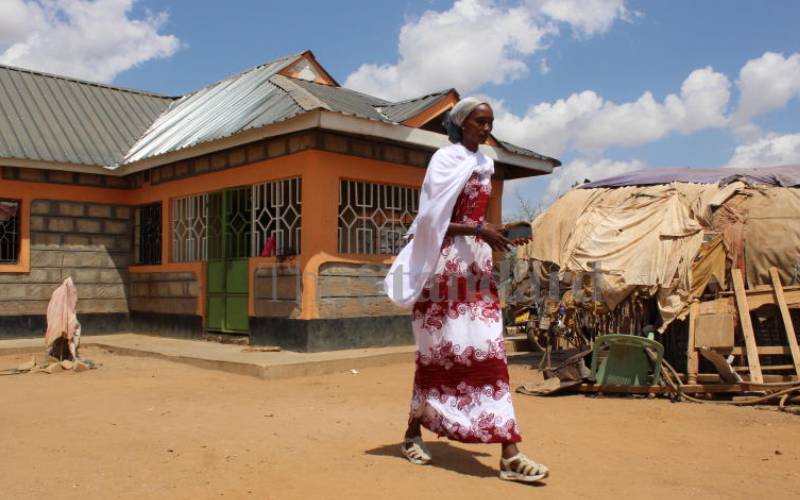×
The Standard e-Paper
Home To Bold Columnists

Rosemary Gumato, a beneficiary of the Hunger Safety Net Programme, outside her house in Merille, Marsabit County. [Betty Njeru, Standard]
Just about 120km south of Marsabit town in Merille village, Marsabit County, Rosemary Gumato sits outside her home preparing lunch for her family.